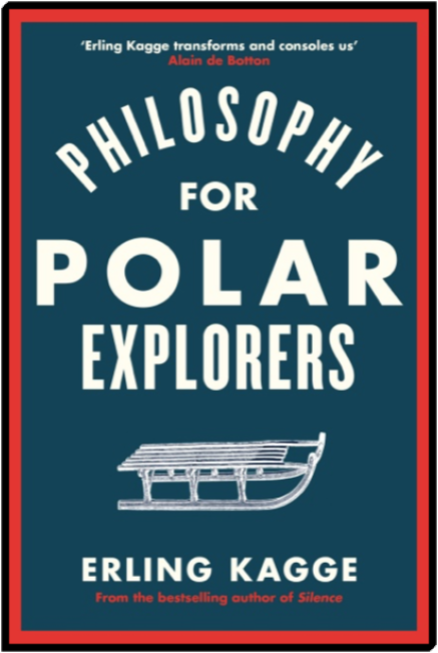It was a cold Monday night in Oxford when I went to see Erling Kagge speak in Blackwell’s bookshop. I wasn’t too sure what to expect as I was there on the invitation of a friend. All I knew was that Erling Kagge is a modern day Norwegian explorer (and author) who holds the distinction of having been the first person to successfully reach all three of Earth’s poles on foot (North/South Pole and Mt Everest summit). What followed was an hour long guided discussion where Kagge talked about his book “Philosophy for Polar Explorers” while providing additional context to some of the writings.
The book itself is only short with 167 pages but it contains 16 philosophies or life lessons that Kagge felt had seen him through the adversities he had faced while completing his quest to the three poles. These are:
- Set your own compass
- Get up early
- Train yourself in optimism
- Don’t fear your own greatness
- Don’t mistake probability for possibility
- Don’t take stupid risks
- Have something to lose
- Don’t chase happiness, let it chase you
- Learn to be alone
- Enjoy small helpings
- Accept failure
- Find freedom in responsibility
- Make flexibility a habit
- Don’t leave luck to chance
- Allow your goal to pursue you
- Reset your compass
Each philosophy spans a chapter of the book and with an average of about 10 pages each they are easily digestible in short bursts. Each one is amusingly written, drawing on personal anecdotes from Kagge’s polar adventures (including a run in with a polar bear) and reinforced with historical examples from past polar expeditions. This is all presented through a subtle but ever present Norwegian lens which has the added benefit of elevating different heroes to those normally encountered in anglo/american literature. Among those referred to are: Thor Heyerdahl of Kon-Tiki fame; Roald Amundsen who was the first person to reach the south pole; and, Fridtjof Nansen who was a Norwegian explorer and Nobel Prize laureate.
This book isn’t the sort of philosophical work to give you the meaning of life, the universe and everything; nor will it give you the secret sauce of leadership or military success. What it will give you though is 16 philosophical pillars to draw on in times of personal adversity when you may struggle to keep going. Lessons that have been tested repeatedly in three of the harshest environments on Earth and that are ideal for anyone who needs to maintain physical and mental resilience for long periods of time in harsh conditions. It’s the sort of book you could easily keep tucked away in your pack for when you most need it.
About the Author:
Chris Bulow is an Australian Army engineering officer with experience in, training, brigade maintenance and higher headquarters roles. He is currently posted to the Defence Academy of the United Kingdom where he is undertaking a Masters of Science in Explosive Ordnance Engineering. You can find him on twitter at @C_Bulow.

